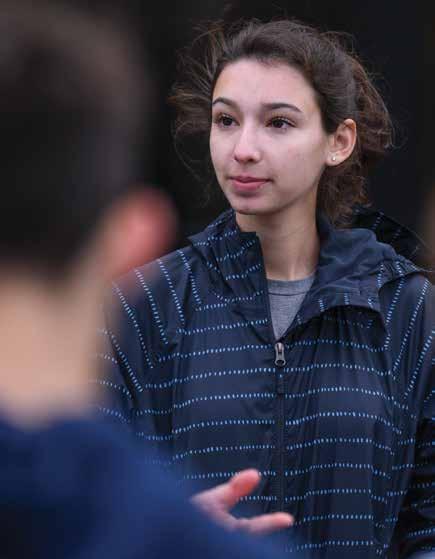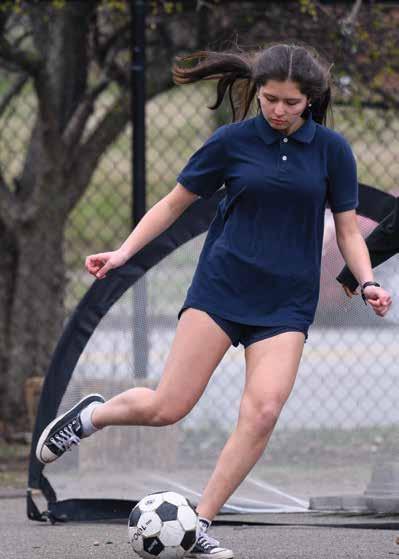
1 minute read
LEADING
Involving students in athletic programs has never been more important. Not only do sports bring a sense of teamwork and strengthen work ethic in participants, but these activities also lead to improvements in physical, mental, and emotional health.
Despite these clear benefits, school athletic programs have seen decreased participation and interest in recent years. According to a survey by the Aspen Institute and Utah State University, nearly 3 in 10 students who were athletes pre-pandemic are no longer interested in playing organized sports.

There is plenty of speculation around what caused this shift. Hyper-competitive youth leagues, digital distractions, and sky-rocketing costs to participate are named as key contributors to this issue.
So what will it take to reinvigorate these programs for young athletes? For those within Butler’s College of Education, the answer is clear—to have strong and successful sport programs, there must be a knowledgeable and dedicated coach leading the way.
The College of Education is addressing this head on, and its recently-revamped Sport Coaching minor is a significant part of this. Available to all Butler students, this program focuses on providing future educators with the knowledge they need to properly lead athletic programs.
“Anybody can be a coach, but not everyone can be a good coach,” Associate Professor Lisa Farley notes. “We’re trying to help our students develop strong coaching skills so that they can impact people for a lifetime.”
This minor, created six years ago by Farley, Associate Professor Mindy Welch ’79, and faculty members Art Furman and Amy (Vonderheide) Bultinck ’99, MS ’17, was completely revised two years ago with input from Assistant Professor Fritz Ettl. The 21 credit-hour Sport Coaching minor now focuses on helping students develop crucial coaching and teaching skills and values, and it also has a significant emphasis on hands-on learning.
“Students need to have really meaningful experiences, so we wanted them to go through this minor being athlete- and youth-facing,” Ettl says. “They need to have








